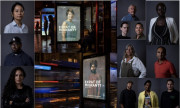Why do the Dutch never get tired of everyday sandwiches, the boterham?
At lunchtime on university campus one thing stands out: the boterham (sandwich). Coming from Japan’s elaborate bento culture, I was puzzled that so many students eat the same…
At lunchtime on university campus one thing stands out: the boterham (sandwich). Coming from Japan’s elaborate bento culture, I was puzzled that so many students eat the same…
Paying attention to gender relations in north-eastern Gabon leads to an emphasis on ethnography's propensity to provide access to the ‘minor mode of reality’: what flaws, signs of…
On 6 March 2025, our beloved colleague Sabine Luning passed away. In this blog, we share some of the speeches of colleagues, students, interlocutors, and friends presented at…
The NWO-funded project Futuring Heritage: Conservation, Community and Contestation in the Eastern Himalayas kicked off on January 6, 2025, with a multi-day workshop with our consortium members in…
‘Futuring Heritage: Conservation, Community and Contestation in the Eastern Himalayas’ is a project funded by the Dutch Research Council (NWO). In the eastern Himalayas, agency is not just…
Since 2018, personal data collected, stored, or otherwise processed in the European Union must comply with the GDPR (General Data Protection Regulation). I would like to share some…
What does ‘heritage’ mean for different stakeholders? How can we problematise and decentre heritage from a multi-disciplinary perspective?
In social scientific projects, methodology and ethics are inextricably linked. In this blog post, I explore how the ethnographic interview contains possibilities for both connection and rupture with…
How do we navigate the relationship between researcher and research assistant in anthropology, especially when that relationship is one of both friendship and research participation? In this piece,…
Academia has systems to control knowledge production to safeguard its claims. But these systems need not control our playful criticality. Writing ethnographic texts as if they were a…
How can social scientists work together with research participants to create new knowledge on issues of public concern? Our experiences studying Instagram with young adults showed us that…
Dutch policy practitioners seek to cooperate with citizens in ethno-racially diverse and disadvantaged neighborhoods. How does this turn out in the face of social inequalities and societal distrust?…
In Turkish-Dutch allotment gardens, gardeners, family and friends gather around the kuzine. The stove forms the centerpiece of gatherings, but is also central in the intricate relationship between…
We all want to do fieldwork well. But what do such “researcher mindsets” do to our bodies when conducting participatory observation? Anna Notsu and Jan Jansen address some…
Anthropology is a personal journey for many. Students learn to see society and their own lives in a different light, reflecting on many things that before were taken…
In 1962 Djiguiba Camara asked his son Daouda to finish his manuscript of the region' history. Daouda dedicated his life to complete this politically highly sensitive manuscript, which…
Can academia still be fun and experimental? Maybe it can with the printing, folding, and collage techniques of zines. In two hands-on workshops, Sander Hölsgens and James McGrail…

During last year’s Fieldwork NL course, second-year students conducted ethnographic research on maintenance. Inspired by U.A. Fanthorpe’s poem ‘Atlas’, they explored deathcare workers, millers, and au…

My dear friend Oscar Salemink died in Copenhagen on September 23 after a prolonged struggle with myeloma cancer. He was outstandingly generous, mischievously funny, and an indomitably social…

What are ‘real’ risks in life? What makes us afraid of the future and how do we perceive uncertainties? These cultural and philosophical questions came to my mind…

How do migrants navigate different identity categories, like ‘expatriates’ and ‘immigrants’? What power relations do these categories reproduce and challenge? Camila, Daniela, Maria, and Natacha condu…

Many educators accept the idea that we need to systematically assess the performance of our students. Easily accessible writing tools complicate the practice of assessment: how do we…

In sport policy research and media reports, culture, ethnicity and religion are constantly framed as contradictory to sport participation. Jasmijn Rana and Kathrine van den Bogert argue that…

A coalition of educators believes that ChatGPT will kill the essay. But should we really fear the algorithms used in large language models? Anthropology has the generative potential…